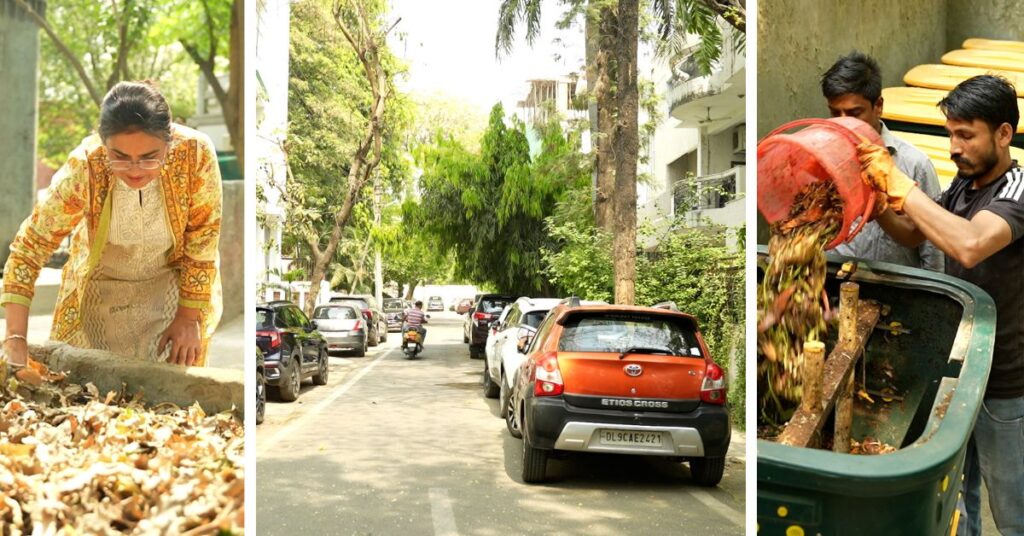In the heart of South Delhi’s Navjivan Vihar, a quiet revolution is underway — and it doesn’t involve protests or politics, but something far more fundamental: garbage. For the past six years, this residential colony hasn’t sent a single bag of waste to the city’s overburdened landfills. It has instead become a living, breathing model of zero-waste living — powered by a doctor, a vision, and a neighborhood that chose transformation over apathy.
From Medical Charts to Waste Segregation Charts
It began with Dr. Ruby Makhija, a resident and practicing doctor, who took over as Secretary of the colony’s Residents Welfare Association (RWA) in 2016. Troubled by the poor sanitation and rising disease in urban environments, she saw waste not just as a civic issue but as a public health crisis.
“As a doctor, I knew how directly poor waste management impacts health,” Makhija said. What started as a small campaign for awareness soon became a full-fledged community effort. Every household in Navjivan Vihar — all 280 of them — was asked to segregate their waste into three categories: wet, dry, and hazardous.
Data-Driven Sustainability
The results have been nothing short of extraordinary:
- Over 125 kg of kitchen waste is composted daily, used to enrich the soil of community gardens.
- The colony has recycled more than 17 tonnes of plastic, 3 tonnes of e-waste, and diverted 30+ tonnes of reusable goods (furniture, clothing, electronics) to those in need.
- A Triple R Centre (Reduce, Reuse, Recycle) now operates inside the colony to handle donations, repairs, and redistributions.
- Not a single kilogram of waste has gone to a landfill in six years.
“This isn’t a utopia,” Makhija insists. “It’s just discipline, education, and the will to do better.”
It’s Not Just About Garbage
Navjivan Vihar’s transformation didn’t stop at waste. The colony introduced:
- Rainwater harvesting systems across buildings
- Leaf composters and community sparrow nests
- Food-sharing fridges for surplus home-cooked meals
- Terrace gardens and water-saving fixtures
- Biodegradable sanitary pads for domestic workers and public education programs on hygiene
Even household helpers and guards were trained and integrated into the process — making it inclusive, sustainable, and replicable.
A Blueprint for the Capital
Inspired by Navjivan Vihar’s success, the Municipal Corporation of Delhi (MCD) has launched an initiative to develop 200 zero-waste colonies by 2027. Officials say the colony’s model — centered around behavioral change, decentralized composting, and community accountability — offers a realistic roadmap for urban India.
Dr. Makhija now works with other RWAs to replicate the model. “Zero-waste doesn’t mean nothing is produced,” she said. “It means nothing gets buried in a landfill. It means we take responsibility for what we throw away.”
A Civic Revolution, One Bin at a Time
Navjivan Vihar’s journey proves that climate action doesn’t always begin at the top — it can start at the bottom of a trash can. By rethinking waste, one colony has rewritten what urban living can look like.


